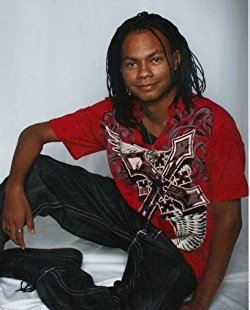MARGARET
MOORE
Margaret
Moore celebrates her fortieth birthday quietly. It’s a day that
should be
celebratory
but in reality, it’s now only a day of sadness. Her father had died
on his way home
from
spending her birthday with her and her son, little David. Or, as she
calls him, Davey. She
blinks,
shaking her head. It’s hard to believe fifteen years have passed
since that dreadful day.
Today,
Davey is helping with the flood damages that have wreaked so much
havoc on the
towns
along the lower Mississippi. So, it seems like a natural day to spend
time remembering her
father.
Other than her son, she has no other family. Her mother died last
year from a heart attack.
At
least Davey telephoned her to wish her happy birthday. Margaret
smiles as she looks at the
photo
of her son, holding a prominent spot on the wall near the front
entrance. He
is such a
handsome
boy.
Unbidden,
she has an immediate second thought and has to convince herself it’s
not an
irreverent
one. She clucks her tongue, mentally chiding herself. But if she’s
being honest, Davey
is
proof positive that God has a sense of humor. Just like most
firstborn children she’s ever
known,
Davey is the spitting image of his father. A weird phenomenon, but
she’s convinced the
first
child a woman has inevitably looks like the father, whereas the
second tends to look like the
mother.
Whether that holds true or not with everyone, only God knows. But
that was certainly
the
case with young Davey, much to her chagrin. When Margaret found out
she was pregnant,
she
realized almost immediately that she didn’t want to marry the man
who got her pregnant.
The
man who in fact, had been her boyfriend for nearly two years prior.
He’d been great fun and
all,
and she’d liked him well enough, but he just wasn’t the kind of
man you chose to bind
yourself
to for the long haul.
Maybe
it isn’t God's sense of humor but merely a pointed reminder that
having a child with
someone
binds the two of you together forever in an intangible but undeniable
way. She’d lost
touch
with Davey's father years ago, and sometimes feels bad about that.
Occasionally she is
reminded
how arrogant of her it has been of her to deprive Davey of a father.
Margaret
and her mother had been close but she always knew that she and her
father had
shared
a special bond. After her parents divorced, she and her father
developed a different sort of
relationship.
It became more mature and their discussions often became intense and
highly
political.
This was partially because she had been sixteen at the time and it
had become easier to
run
his radical ideas by a sixteen year old who could intelligently argue
back, than it had been to
have
such discussions with a ten year old.
Her
father had been on the road for much of Margaret's childhood,
covering stories and
seeking
out deep secrets and hidden agendas. He was a crusader for good, her
mother always
said.
Even still, she divorced him. She’d been lonely for one thing,
living on her own and raising
a
child. She also once admitted years later that she’d been afraid
too. “Your father never had any
fear
of the repercussions of sticking his nose in business it didn’t
belong in, but I did.”
The
reports after her father's fatal accident claimed it was caused by
drinking and driving.
But
Margaret knew better. He'd had one
glass of wine
at her birthday party. He was not drunk
when
he left her and Davey and began the hour-long drive back to his own
home. He had
however,
been agitated and distracted, which she supposed could have resulted
in the accident.
The
media reports were highly skewed, she was certain. She always knew
that for some reason,
the
head of Robb Media hadn’t liked her father, even after the years of
excellent service he’d
provided
for that company. Because of that, she chalked the negative reports
up to journalistic
chicanery
and the whimsy of an antagonistic ex-boss.
For
whatever reason, the newspapers sought to blacken his memory as much
as they could.
Margaret
possesses her mother's personality and she has always been much less
inquisitive than
her
father. She could definitely see him driving too fast, obsessed with
whatever thoughts were
tormenting
him that day, and losing control of his car. Despite that, part of
her knows if only
she’d
been more like her father, she’d have seen a plot behind his death
and she’d have pursued
that
plot, looking for the truth.
Margaret
roams restlessly around her living room and looks out the front
window. Eyes
turned
inward, blind to the present world, she thinks back to that day his
car had pulled into her
driveway.
He’d opened his trunk and pulled out one enormous box. It was
plain, made of
cardboard.
She’d thought at first it was her birthday present, especially when
that was the only
thing
he’d carried into the house.
She’d
pushed the door open wide, ushering him in and said, “Oh is that
for me?”
He’d
set the box down in her hallway and replied, “No. This is.” Then
he’d reached into
his
pocket pulled out a small package that he handed to her. She fingers
the locket around her
neck.
That had been her gift. A solid gold locket.
He’d
given the box a small kick with his foot. “This is just some papers
I'd like to store
here.
Old research and a lot
of memories.”
His tone was reflective.
When
she’d looked at him with a questioning gaze, he’d elaborated.
“I'm downsizing and
sorting
out some things. I'll have more stuff I'd like to store here, if you
don’t mind. Oh, and is
there
any furniture of mine you have a particular liking for?” She’d
felt something then, some
frisson
of unease. Maybe it had been God forwarning her of what was to come.
The
box turned out to be full of family pictures, along with an old
antiquated Bible, the
heavy
kind with the gold-edged pages. It also held congratulatory cards
that had been sent to her
parents
on her birthday – her original birthday, the actual day she was
born. There had also been
a
file folder with a thick stack of articles neatly typed and stapled
together.
When
she had to close up her father's apartment after the accident, she
and her mother
went
through that box together. They’d laughed and cried and reminisced.
Then they’d each
chosen
which mementos they wanted to keep to remember him by. Margaret’s
heart aches as she
remembers
her mother’s words that day. “Sweetheart, you know I loved him
too,” she’d
whispered
tearfully.
All
I could think of to say back was, “I know, Mom. And he loved you.”
At
the end of it all, her mother took some of the furniture and Margaret
took all his files
and
his old typewriter. Now, on her fortieth birthday, Margaret thinks of
that Bible and the
typewriter,
both of which are on display in her front hall, set lovingly on a
narrow, long-legged
table.
She
thinks again of the boxes of papers stored in her garage and the file
folder she has
stuck
in among the taller books on her bookshelf. All the family photos she
and her mother had
diligently
arranged in properly labeled albums.
Now,
with Davey gone for her birthday, Margaret wonders if this was how
lonely her
father
had felt. Downsizing? He’d lived in a tiny, one-bedroom apartment.
How far did he plan
to
downsize, exactly? She remembers he often used to tease her about
having absolutely no sense
of
curiosity. He always credited her mother with giving her genes that
kept her from sticking her
nose
into dangerous places.
Feeling
suddenly as though she’d let him down somehow, Margaret looks up
toward
heaven
and whispers, “I'm sorry, Dad.” Then she gets up and refills her
wine glass. Letting her
instincts
guide her, she wanders over to her bookshelf and pulls the file
folder down from where
it
has been stuffed for fifteen years.
She
opens the folder and the first stapled collection of papers that
catches her eye is one at the
back.
It has a front page of yellow lined paper littered with her father's
distinctive handwriting.
Bold
big letters in thick black pen strokes. The rest of it is
typewritten.

 Chris Thorndycroft is a British writer of historical fiction, horror and fantasy. His early short stories appeared in magazines and anthologies such as Dark Moon Digest and American Nightmare. His first novel under his own name was A Brother's Oath; the first book in the Hengest and Horsa Trilogy. He also writes under the pseudonym P. J. Thorndyke.
For more information, please visit Chris Thorndycroft's website. You can also find him on Twitter and Goodreads.
Chris Thorndycroft is a British writer of historical fiction, horror and fantasy. His early short stories appeared in magazines and anthologies such as Dark Moon Digest and American Nightmare. His first novel under his own name was A Brother's Oath; the first book in the Hengest and Horsa Trilogy. He also writes under the pseudonym P. J. Thorndyke.
For more information, please visit Chris Thorndycroft's website. You can also find him on Twitter and Goodreads.


































